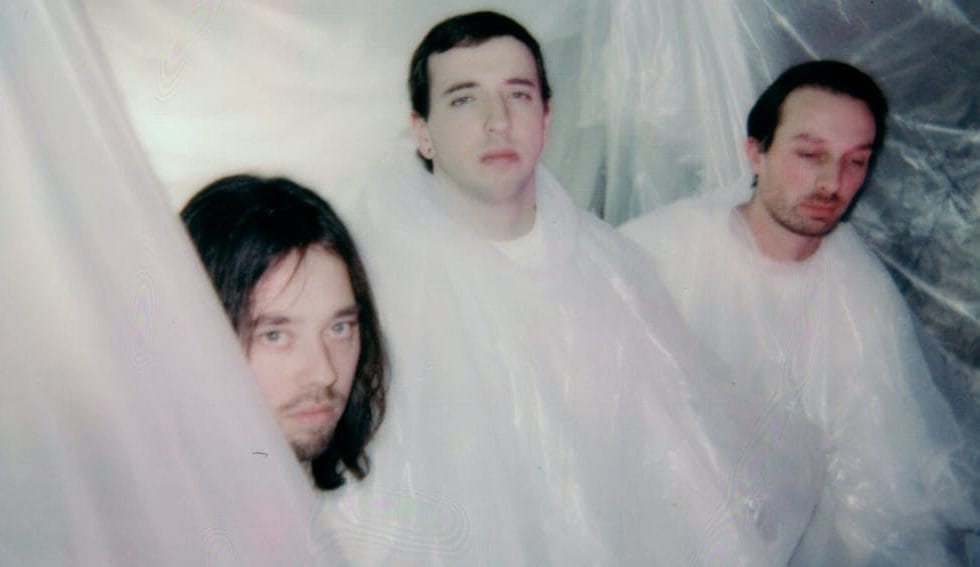“The overlying message of the record is taking your independence back, and ‘sticking it to the man’, as Jack Black would say in School of Rock.“
At some point in your life, someone’s going to give you advice that you never asked for. They’ll recklessly overstep the line and erode your confidence in your own work in favour of their opinion, ringing the death bell for your sense of creativity. Only, you have the choice to, as Ohio alt act Citizen so deftly articulate to us, “stick it to the man” and shove it right back in their face.
That expression is exactly the central principle of their fourth studio album, Life In Your Glass World. Speaking to Blunt Magazine, scene-hero and frontman Mat Kerekes invokes the wisdom of revered Jack Black character Dewey Finn. Inarguably, writing a rock record about “the man” that you’re trying to break free from and then getting them to release it is very School of Rock.
“When you’re doing something like music or something inventive,” he explains, “a lot of hands start getting involved. You start to feel that you’re getting pushed around a little bit, and a lot of the lyrics were backlash [on that]. At the end of the day, we’re the ones doing it and whatever we want to do is going to be what’s going to happen.” On Life In Your Glass World, Kerekes conclude: “A lot of this record is about taking control of your life.”
Responding to outside forces in that way isn’t quite dominating Kerekes and the gang’s life, although it seems that toxic energy is in greater supply than its alternative these days. They sound angry, sometimes subtly and others homicidally (see single: ‘I Want To Kill You’), but they aren’t pulling that thread through to their everyday interactions. “It’s healthy to let out frustrations and I think music is a very passive and positive way to do that. I’m not going around to people saying, ‘Fuck you’, because I’m mad at them.”
Having written this album prior to the pandemic, Kerekes has been simmering in quarantine waiting patiently for it to see the light of day. Of course, the point of freeing yourself from the suffocation of an external force is still as relevant now as it would have been a year ago, but the interim between then and now hasn’t been all sunshine and daisies.
“It’s unmotivating to write new stuff,” he admits. “I just want to get this stuff out. I’ve sat down and made attempts to write more songs here and there, but I feel like, ‘What’s the point?’ I want this new record to be out before I start doing other shit…Playing shows is ultimately what bands want to do, and if you can’t do that, then explore other avenues in life, I guess. So I wrote a handful of solo songs last year, but that was the only music that I wrote last year. And I just put it out immediately, so I don’t have anything waiting to be unleashed.”
With their patience acknowledged, Citizen’s fresh LP will finally drop this Friday, without a traditional immediate 20-date celebration tour to commemorate it. It’s a low key affair for a band that “never really had any expectations”, but aren’t disappointed to be where they are (“We get do this as our job, we get to live by our means and that’s all I care about at the end of the day.”)
Kerekes still has a little patience left, using this period of the pandemic tapering off to brush up on artists he missed out on loving at the right time – he’s having a Rolling Stones phase currently and recently discovered Arctic Monkeys’ Tranquility Base Hotel & Casino, which he agrees was severely underrated upon its release three years ago. Kerekes is more qualified than anyone else to make the observation that “when you put out something that seems a little left field to your fan base, there’s not that immediate connection”, the same way that when Citizen released their sophomore effort Everybody Is Going To Heaven, fans of their debut album Youth were “really pissed.” He caveats: “I’m not comparing Citizen to Arctic Monkeys at all. Well, a little bit, but not in terms of band impact…I think some albums need time to simmer with people.”
It’s small talk to Kerekes, but it’s part of the bigger picture, which is Citizen reclaiming power over their creative independence. Their sophomore album was questioned for being different, then venerated shortly after, which is precisely why they’re begging on Life In Your Glass World to break free of the bullshit and get to do what they want to do upfront. Ultimately, they’re both defending and documenting the Citizen vision, which has been proven time and time again to be worth protecting from the vultures of musical criticism.
It’s very Mr. Dewey to fight for your artistic integrity.









